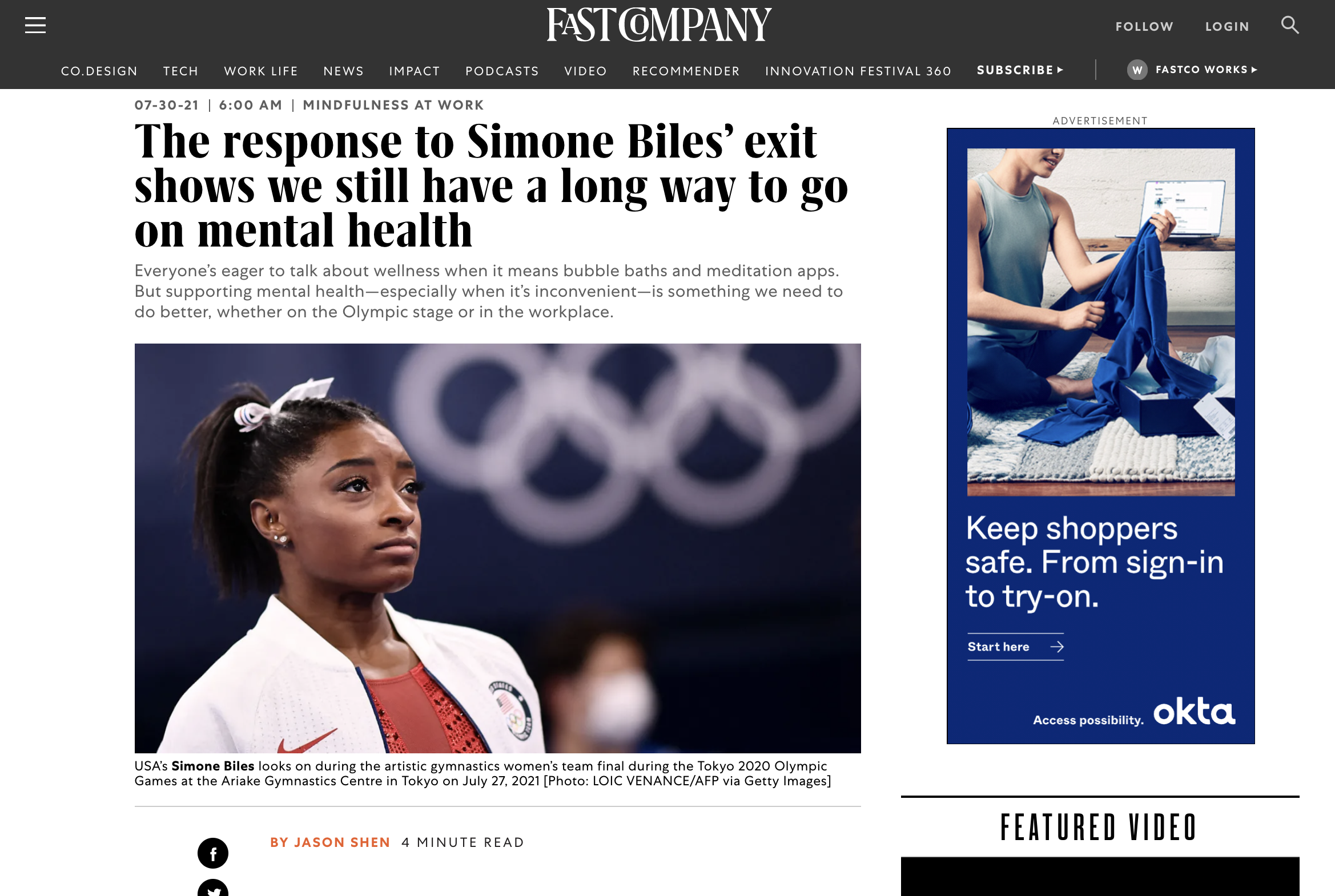This is the 63rd edition of Cultivating Resilience, a weekly newsletter how we build, adapt, and lead in times of change—brought to you by Jason Shen, a 1st gen immigrant, retired gymnast, and 3x startup founder turned Facebook PM.
🧠 On Simone and Suni
I wrote a new column for Fast Company on Simone Biles and her withdrawal from team finals.

As anyone who’s scrolled a social media feed in the past 48 hours knows, Biles’ decision to withdraw due to a mental focus issue has become a lightning rod of discussion. While there was a huge outpouring of support and empathy, some commenters criticized her for seeming to quit on her teammates and caving under pressure. One tweeted a fictional headline about Michael Jordan withdrawing from the NBA Finals due to a mental health issue, implying that a true champion would have stuck it out.
Honestly this is such an ignorant take because first of all, MJ left basketball at the peak of his career after the death of his father because the game wasn’t fun any more. And second, being “mentally off” in a basketball game is nothing like being off in a gymnastics competition. What’s the worst thing that happens? You miss a shot or get the ball stolen. For a gymnast, it means torn ligaments, dislocated joints, and broken bones.
Here’s Emily Lee, an elite gymnast, tearing her Achilles’ at Olympic Trials on her first pass.
They make those passes look so damn easy that you forget how fucking dangerous this sport really is and that’s why the keyboard warriors saying how Simone is a quitter truly have no idea what she’s talking about.
I competed a double-twisting Yurchenko in college—a similar but easier skill to what Simone was set to compete (2.5 twists). I landed wrong one time and tore my anterior, posterior, medial, and lateral cruciate ligaments at the same time.

Warning: this video is not for everyone
One of my teammates and close friends literally broke his neck after losing his air sense on a vault. He didn’t sever his spinal cord, thank god, and eventually returned to competition (including the vault). But he has a 9 inch scar across his neck, two vertebrae that were surgically fused together, and chronic neck pain.
In my article, I point out that there’s this concept of the “sports ethic” which says that great athletes should dedicate their life to the game, strive to win at all times, push through pain and injury, and never quit no matter what. While those are noble ideals to strive for, they also lead to really harmful outcomes for those who ultimately do reach the podium and the hundreds and thousands who never do.
This mentality is repeated in the workplace as well. We expect employees to always go above and beyond and we’re still a long way from truly prioritizing mental health.
Anyway, I don’t want to repeat my whole piece here, please check it out!
The Response to Simone Bile’s Exit Shows We Have a Long Way to Go on Mental Health (fastcompany.com)
🖼 Hypocrisy

Like you can’t make this stuff up.
👉 Sunisa’s Road to Gold
I don’t want this article to be all about Simone. Similar to Tiger Woods or Michael Phelps, she kind of sucks up all the oxygen and attention in the room. So please enjoy this behind the scenes look at Sunisa Lee, the new all-around Olympic champion. She’s the first Asian American and Hmong American to win all-around gold and she’s got an incredible journey of her own. A family of six siblings. A father who became paralyzed right before US Championships. This woman is as resilient as they come and her win was a fight to the finish.
Like this edition of Cultivating Resilience? Help me reach more people who could use these ideas by sharing it!

